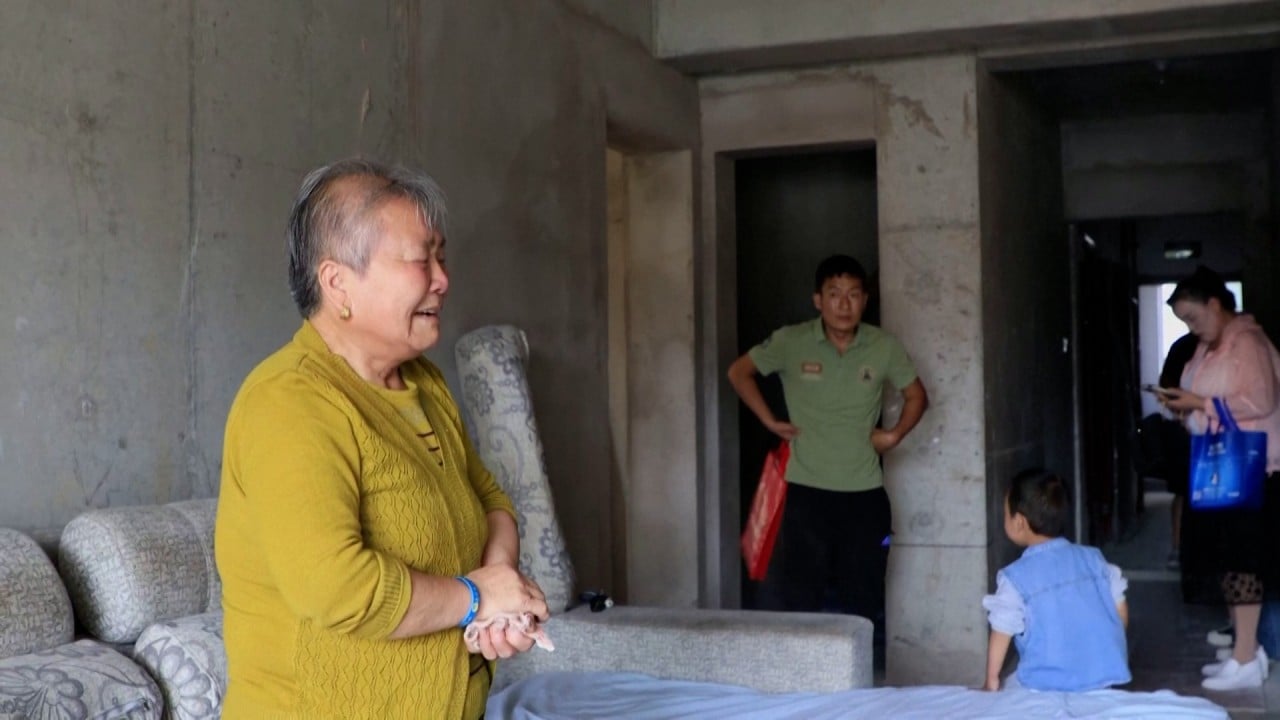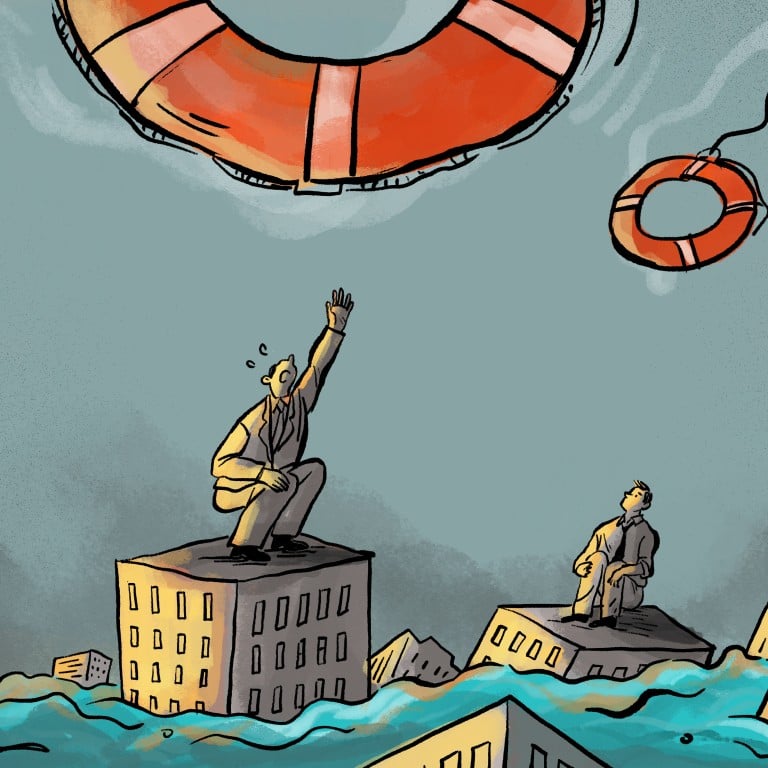
China property: once-mighty developers strain for lifelines of state support after end of sector’s ‘golden age’
- State-owned companies will dominate as ‘the golden age of fast leverage and fast growth’ is over, analyst says
- Even the developers that avoid default will find the coming years brutal, another expert says
Zeng Baobao, founder of distressed Chinese developer Fantasia Holdings, made a special wish on the last day of 2023: that the company she started in 1996, now beset by debt problems, would find itself on a rumoured “white list” of developers that will be able to get financial support with the blessings of Chinese authorities.
While the list has yet to surface, its supposed existence gives companies such as Fantasia a glimmer of hope that they may be able to escape from a crushing liquidity crisis.
However, analysts warn that even the developers that make the list will find the coming years brutal. The landscape of the home-building business in China has been forever altered by the years-long liquidity crisis and a prolonged sales slump, analysts said. Now companies with partial or full state ownership are set to hold sway as Beijing exercises a firmer hand.
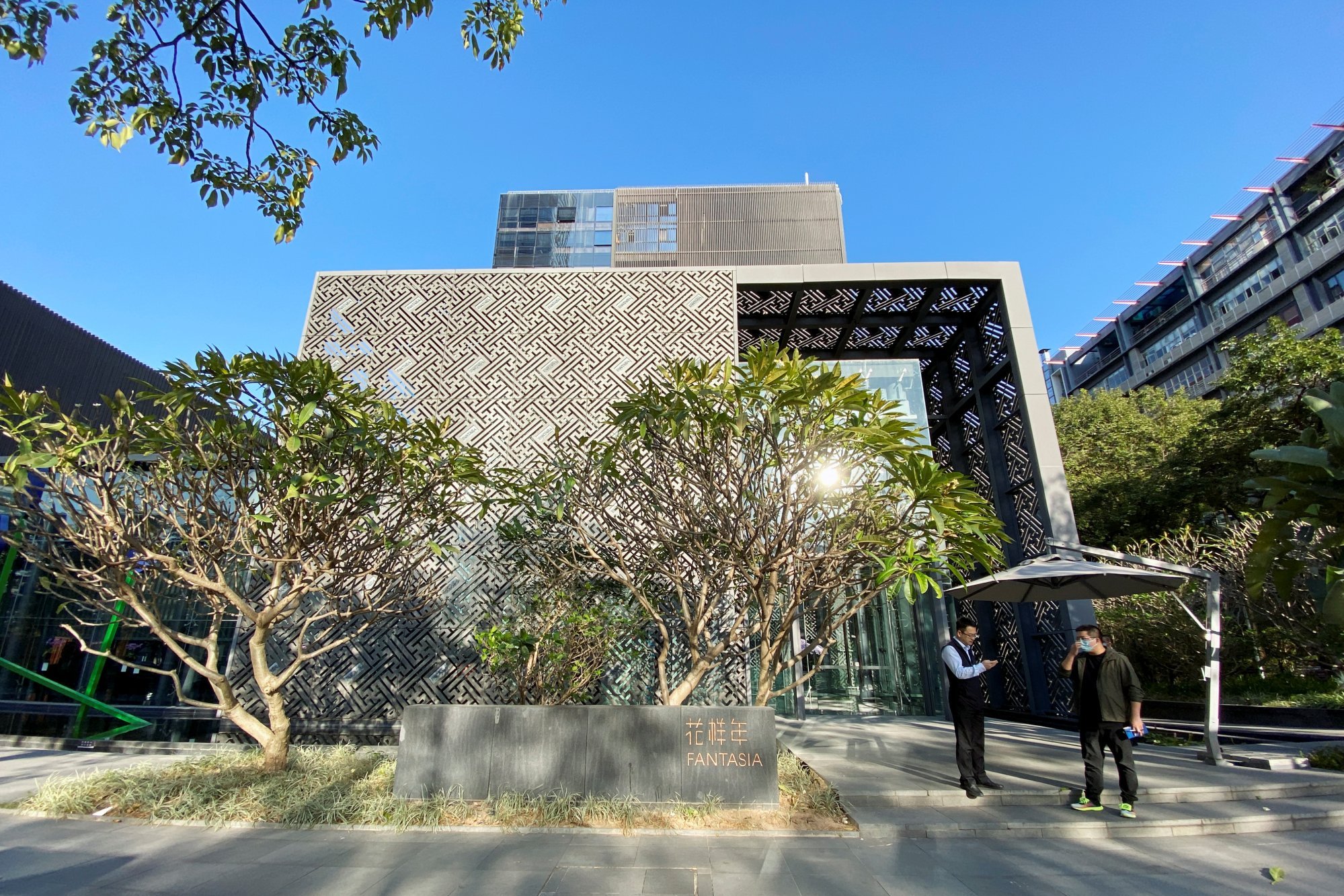
Chinese developers have muddled through the past three years under financial distress, triggering debt defaults of more than US$100 billion. The crisis kicked off after China’s “three red lines” measures cut access to bank and bond-market funding in August 2020, just as the Covid-19 pandemic cratered sales.
“Developers, especially private ones, will still face challenges of survival in the coming five to 10 years,” said Raymond Cheng, managing director at CGS-CIMB Securities, using the word “private” to refer to companies that are not state-owned, even though they are in most cases publicly traded. “The first concern for them is how to survive, rather than how to develop, under pressure of repaying debts and sluggish sales.”
As falling sales drain coffers and Beijing’s directive to prioritise delivery of unfinished flats mandates spending, the bills for past borrowings are coming due.
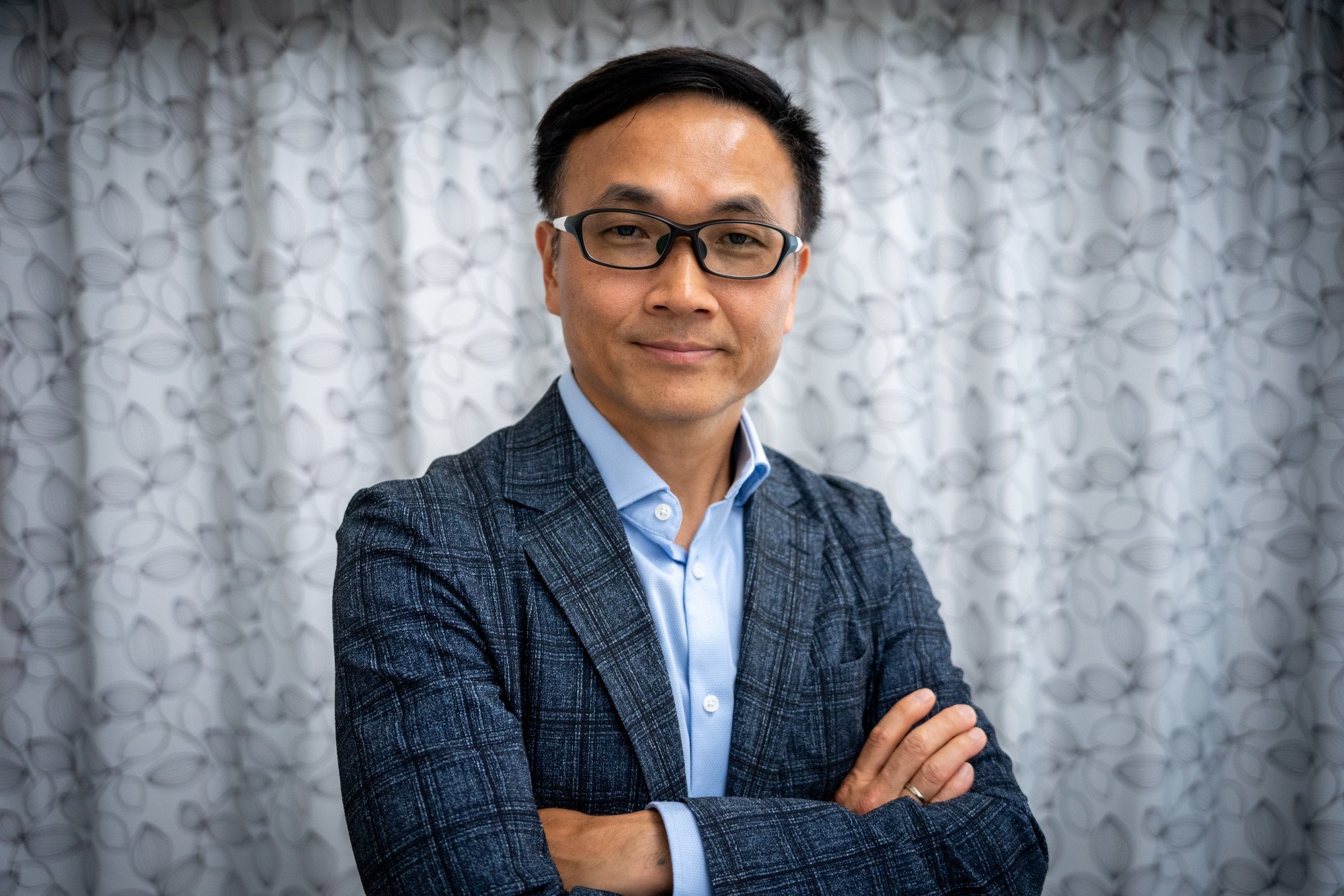
Developers will continue to face significant bond repayments in 2024, with the principal amount of onshore and offshore bonds due or puttable this year hitting 737.3 billion yuan (US$103 billion), up 11.3 per cent from a year ago, according to data compiled by Fitch Ratings.
Even the developers that avoid default will need to repay a total principal amount of 39.3 billion yuan in onshore debts and US$5.5 billion in offshore debts in 2024, 25 per cent higher than last year, with maturities exceeding 10 billion yuan peaking in March and August, the agency said.
At least 10 Chinese developers missed debt repayments last year. For example, Country Garden Holdings and Sino-Ocean Group – two of the country’s best-known developers – failed to pay offshore debts in August, adding to concerns that a hoped-for recovery was a mirage.
Yang Huiyan, chairwoman of the company and daughter of founder Yang Guoqiang, pledged at an internal conference in December that the founding family will save the company even if it has to “smash iron pots and sell scrap”.
Yang, China’s former richest woman, added at a January meeting that the company will deliver 480,000 homes in 2024 after delivering 600,000 last year.
Yet the challenges in front of Country Garden and its peers are severe.
“The market is expected to hover at a low level in 2024, and the sales performance in different cities, and the outlooks between state-owned and private companies, will increasingly diverge,” Country Garden president Mo Bin said at the meeting.
A nationwide tally of unfinished pre-sold homes has bloated to 20 million, according to an analysis by Nomura. The cost to complete those units in 2024 would be 2.7 trillion yuan, even after considering 550 billion yuan the government has promised to help tackle the delivery backlog, the investment bank said.
Meanwhile, both Goldman Sachs and UBS estimate that national home sales will drop 5 per cent this year compared with last year, which will further squeeze developers even though it is a smaller contraction than the 10 per cent year-on-year drop in 2023. International rating agencies such as S&P and Fitch have similar expectations.
“There is still considerable risk that it will have an impact on residents’ confidence and do harm to the stability of the country’s economy if the real estate sector goes down further,” Wang Tao, chief China economist at UBS, said at a media briefing on January 9. “This is the biggest risk of an economic downturn this year.”
Even if they manage to run the gauntlet of the current crisis, developers will not be returning to business as usual.
China’s home prices continue decline with biggest drop in nearly 9 years
“Most developers probably need to accept the fact that the golden age of fast leverage and fast growth is over,” said Gary Ng, a senior economist with Natixis Corporate and Investment Bank.
In the past, those entities raised capital easily through offshore bond markets, often at double-digit coupon rates, said Ricky Tsang, an analyst with S&P.
“The firms would take that money, buy land, pre-sell homes, and move on,” he said. “But it was all based on a belief that land and housing prices could only go up.”

Developers would build and then quickly sell, eliminating the need to pay interest on the debt backing their projects and minimising the capital cost of each development.
“Now, as this model fades, so has the previous dominance of the private firms,” Tsang said. “The high-churn business and funding models previously favoured by private firms have become untenable.”
Another wave of defaults like 2022 is not likely this year, as the companies with the biggest liquidity problems have already defaulted, said Zhang Shuncheng, a Shanghai-based analyst with Fitch Ratings.
Distressed builder Logan Group vows to cut debt amid US$8 billion workout plan
“There is a survivorship bias,” he said. “Those doomed to default have defaulted, and those remaining in the market are all survivors.”
But firms without state backing face a dearth of funding, Zhang said. “We can see that the financing is a big challenge for private developers, as the funding support from financial institutions is highly selective.”
That leaves Chinese developers scrambling to secure credit support from the government.
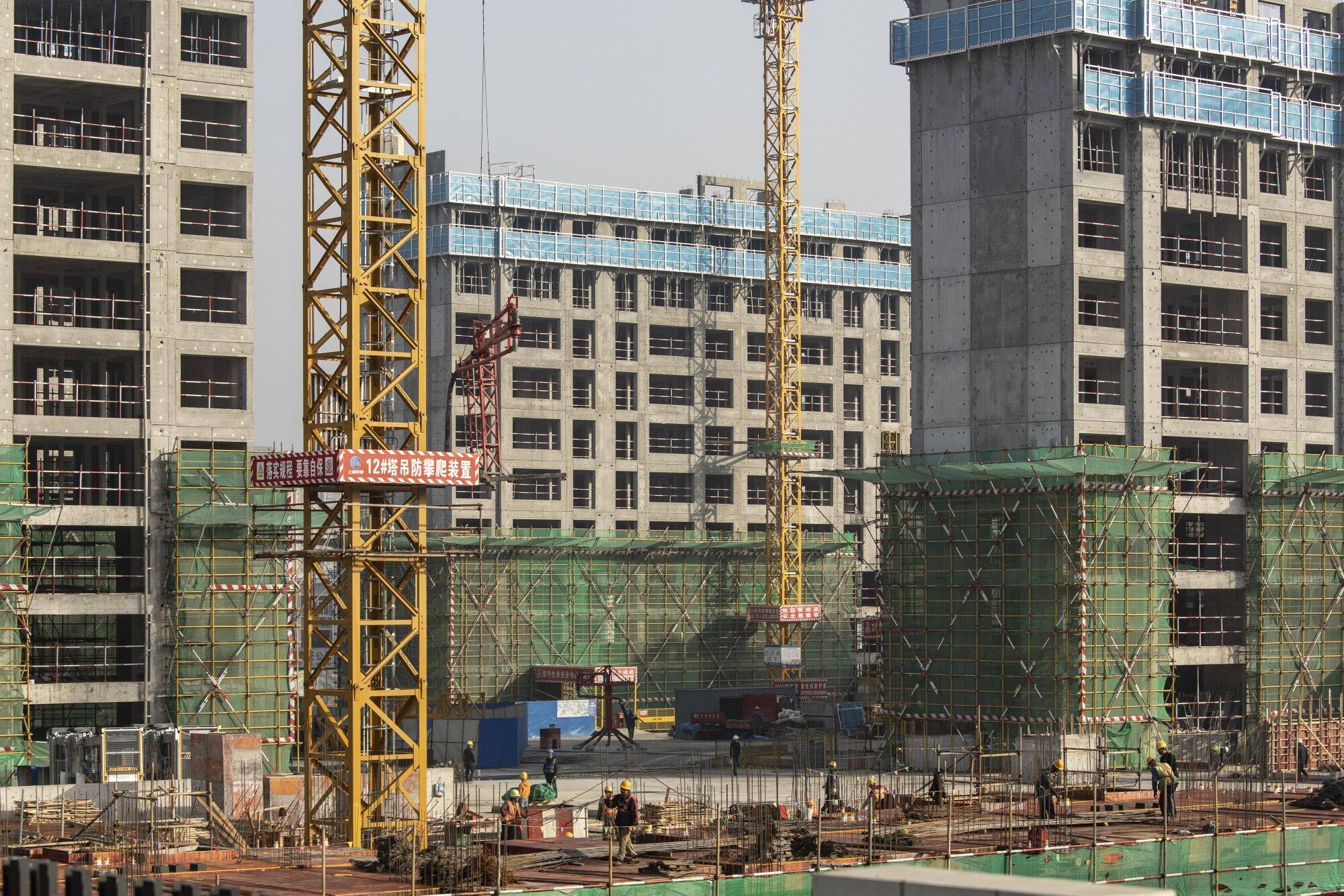
Take the case of state-backed China Vanke, the second largest developer by sales. The company said it has arranged funding for the repayment of debts maturing in 2024, thanks to a pledge of support from the Shenzhen state asset regulator.
With this assistance, the company will “overcome difficulties” despite the challenges it faces, Yu Liang, vice-chairman, said at a meeting with more than 150 financial institutions and investors last year.
Chief among those challenges will be winning back the trust of prospective homebuyers. About 80 per cent of home purchases in China are sold before they are built, which means buyers must believe the developer will stay solvent long enough to deliver the home.
And buyers right now are well aware of the healthier balance sheets of state-owned entities. In the first 11 months of 2023, year-on-year home sales fell for more than 60 property firms, with 31 dropping by more than 30 per cent. Firms without state ownership accounted for 28 of those 31, according to data compiled by China Real Estate Information Corporation.
According to data compiled by CGS-CIMB, the market share held by state-owned developers surpassed that of other developers in 2023 for the first time in the history of the China market, albeit by a narrow margin of 51 per cent versus 49 per cent.
Where developers without state ownership accounted for 70 per cent of the market over the past decade, their share is expected to fall below 37 per cent by 2030, according to analysts.
“It’s a conservative estimate, and the reality might be even worse than we expect,” CGS-CIMB’s Cheng said.
Defaulted and distressed developers are rushing to sell assets to generate revenue to pay their bills, rather than buying land and building new projects.
For example, a month ago a land plot owned by Logan Group in Shenzhen failed to find a buyer at a forced auction despite a 24 per cent discount.
China Aoyuan wins Hong Kong court sanction for plan to cure defaulted debts
“Most developers, especially the private ones, will probably want to offload the units they have before they build new ones,” said Natixis’s Ng.
That means the gap between state-owned developers and the rest will expand over the next five to 10 years, analysts said.
National data shows that investment in real estate development has been falling since April 2022, with the decline accelerating last year as it dropped 9.6 per cent year on year to 11.09 trillion yuan.
“It’s simple maths,” Cheng said. “For SOEs [state-owned enterprises] such as Poly or COLI, they can still use 40 yuan per 100 yuan of sales income to purchase land and build premium land banks. Not much changes when compared with before. But how much are privately owned players likely to pay? Almost zero.”
In 2023, state-owned developers accounted for 49 per cent, by value, of the land bought in 22 tracked mainland cities, a 12 per cent increase over 2022, according to a report issued by research firm China Index Academy. Developers with state backing, including from local governments, accounted for around 30 per cent, and developers without state ownership accounted for just above 20 per cent.
China’s home developers suffer further sales skid to end miserable 2023
“The trend is irreversible: state-owned developers will dominate the market,” Cheng said. “Only SOEs and some quality private developers may exist. Others may disappear.”
The entire property business is destined to become “a more state-driven sector” over the long term, said Natixis’s Ng.
“The importance of the state in the real estate sector is growing,” he said. “It will probably be a sector which increasingly looks like utilities.
“The question about that is whether the government always acts better than the market in matching supply and demand. One of the risks could be oversupply or undersupply.”


